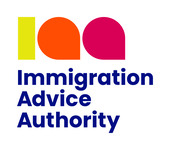Table of Contents
Introduction
Whether you’re currently residing in the UK with indefinite leave to remain, married to a British citizen, or exploring options from abroad, understanding the pathways to British citizenship is crucial for making informed decisions about your future.
In this article, we explain everything you need to know about becoming a British citizen. We cover eligibility requirements, application procedures and post-application processes, as well as special circumstances.
Understanding British Citizenship
What Is British Citizenship?
British citizenship is a legal status that grants individuals the right to live and work in the United Kingdom without immigration restrictions. As a British citizen, you become a full member of British society with all the rights and responsibilities that entails.
Benefits of British Citizenship
Obtaining British citizenship offers numerous advantages, including:
- The right to live and work in the UK without immigration restrictions
- The ability to travel freely with a British passport, which provides visa-free access to numerous countries
- The right to vote in all UK elections and referendums
- The right to stand for public office
- Access to public funds and services
- The ability to pass British citizenship to children born outside the UK
🔗 See the official UK Government British Citizenship website
Types of British Nationality
It’s important to understand that British citizenship is just one form of British nationality. Other types include:
- British Overseas Territories Citizen (BOTC)
- British Overseas Citizen (BOC)
- British Subject
- British National (Overseas)
- British Protected Person
Each status carries different rights and restrictions, with British citizenship offering the most comprehensive benefits.
Eligibility for British Citizenship
There are several pathways to British citizenship, each with its own eligibility criteria and requirements.
British Citizenship by Birth or Descent
Not everyone born in the UK automatically becomes a British citizen. Your eligibility depends on when you were born and your parents’ circumstances:
- If you were born in the UK on or after January 1, 1983, you’re automatically a British citizen if at least one of your parents was a British citizen or settled in the UK at the time of your birth.
- If you were born in the UK before January 1, 1983, you’re generally considered a British citizen.
- If you were born outside the UK to a British parent, you may be eligible for British citizenship by descent.
British Citizenship through Naturalization
Naturalization is the most common route to British citizenship for adults who weren’t born British. To be eligible, you typically need to:
- Be over 18 years old
- Have lived in the UK for at least 5 years (or 3 years if married to a British citizen)
- Have held indefinite leave to remain (ILR) or settled status for at least 12 months
- Meet the good character requirement
- Pass the Life in the UK Test
- Meet the English language requirement
- Intend to make the UK your primary home
British Citizenship through Marriage or Civil Partnership
If you’re married to or in a civil partnership with a British citizen, you may be eligible for citizenship after living in the UK for 3 years, provided you:
- Have indefinite leave to remain (ILR) or settled status
- Meet all other naturalization requirements (good character, language skills, Life in the UK Test)
British Citizenship through Registration
Registration is primarily used for children under 18 and certain other specific cases. Children may be registered as British citizens if they:
- Were born in the UK and have lived there for the first 10 years of their life
- Were born in the UK to parents who became settled or British citizens after their birth
- Were born outside the UK to a parent who is a British citizen by descent
Application Process for British Citizenship
Preparing Your Application
The application process begins with thorough preparation:
- Determine your eligibility pathway based on your personal circumstances
- Gather required documents, which typically include:
- Proof of identity (passport or travel document)
- Proof of immigration status
- Proof of residence in the UK
- Evidence of English language proficiency
- Life in the UK Test pass certificate
- Biometric information
- Complete the appropriate application form (e.g., Form AN for naturalization)
- Pay the application fee (currently £1,330 for adults applying for naturalization, plus £19.20 for biometric information)
Submitting Your Application
You can submit your application:
- Online through the UK government website
- By post using a paper form
- Through an agent or representative (such as an immigration lawyer)
After submission, you’ll need to provide your biometric information (fingerprints and photo) at a UK Visa and Citizenship Application Services (UKVCAS) center.
Tracking Your Application
Processing times vary, but most citizenship applications are decided within 6 months. You can track the status of your application online using your application reference number.
Requirements for British Citizenship
Life in the UK Test
Most applicants between the ages of 18 and 65 must pass the Life in the UK Test, which assesses your knowledge of British traditions, customs, history, and practical aspects of living in the UK. The test:
- Consists of 24 multiple-choice questions
- Requires a score of at least 75% to pass (18 correct answers)
- Costs £50 per attempt
- Must be booked at least 3 days in advance
English Language Requirement
You must demonstrate proficiency in English, Welsh, or Scottish Gaelic by either:
- Having a degree taught or researched in English
- Passing an approved English language test at B1 CEFR level or higher
- Being a national of a majority English-speaking country
Certain exemptions apply for those over 65 or with physical or mental conditions that prevent them from meeting this requirement.
Good Character Requirement
All applicants must satisfy the good character requirement, which considers:
- Criminal record (including spent convictions)
- Immigration law compliance
- Financial reliability
- Involvement in war crimes or terrorism
- Deception in previous immigration applications
For naturalisation, you must:
Residency Requirements
- Have been physically present in the UK on the day 5 years before application (or 3 years if married to a British citizen)
- Not have spent more than 450 days outside the UK during the 5-year qualifying period (or 270 days during the 3-year period for spouses)
- Not have spent more than 90 days outside the UK in the final 12 months
Post-Application and Citizenship
After Approval
If your application is successful, you’ll receive an approval letter inviting you to attend a citizenship ceremony. At this ceremony, you’ll:
- Take an oath or affirmation of allegiance to the UK
- Make a pledge of loyalty to the UK
- Receive your certificate of naturalization or registration
The ceremony must be attended within 3 months of receiving your invitation
British Passport Application
After receiving your certificate of British citizenship, you can apply for a British passport. This is a separate process with its own application form and fee.
Rights and Responsibilities
As a British citizen, you have the right to:
- Live and work in the UK permanently
- Vote in all elections and referendums
- Stand for public office
- Serve on a jury
You also have responsibilities, including:
- Serving on a jury if called upon
- Obeying UK laws
- Paying taxes if resident in the UK
Special Circumstances and Other Routes
EU, EEA, and Swiss Citizens
Following Brexit, EU, EEA, and Swiss citizens must first obtain settled status under the EU Settlement Scheme before applying for British citizenship. They must typically have lived in the UK for 12 months after receiving settled status before applying for citizenship.
Commonwealth Citizens
Commonwealth citizens may have different routes to citizenship, including:
- The Windrush Scheme for those who arrived in the UK before 1973
- Right of abode for certain Commonwealth citizens with UK-born parents
- Ancestry visas for those with a UK-born grandparent
Refugees and Humanitarian Protection
Those granted refugee status or humanitarian protection in the UK can apply for citizenship after obtaining indefinite leave to remain and meeting the standard residency requirements.
Stateless Persons
Special provisions exist for stateless persons born in the UK or born to British parents outside the UK.
In conclusion
The journey to British citizenship requires careful planning, thorough preparation, and patience. While the process may seem complex, understanding the requirements and procedures outlined in this guide will help you navigate the path with confidence.
Remember that immigration rules can change, so it’s always advisable to check the latest requirements on the official UK government website or consult with an immigration professional for personalized advice.
Author

Tochi Okoronkwo
Tochi is an IAA-certified immigration adviser with expert knowledge of UK Immigration Law and a genuine desire to make your immigration journey as smooth and stress-free as possible.
Stay Updated
Related Articles
Quickly browse the latest offers, read in-depth articles, and case studies to get the full story.


